Date and time
Forthcoming Webinars:
Past Seminars
Session Details:
Over the past few decades, pension funds have emerged as major players in global financial markets as the reserves they manage have grown steadily. In this context, trustees are confronted with acute dilemmas regarding how best to generate investment returns for beneficiaries. This involves crucial decisions regarding the diversification of investment portfolios, as well as decisions on whether, when, and to whom to outsource investment functions and tasks. The literature in economic geography has frequently treated outsourcing decisions as taken by the asset-owners based on criteria such as costs of coordination, availability of information regarding market segments, governance structure, (lack of) internal expertise, amount of assets under management, etc. Focusing on the outsourcing of property investment by Brazil’s largest pension funds and drawing on a relational approach, this paper investigates the actions taken by the REIT industry to attract and retain pension fund money into their investment vehicles. It is claimed that REIT managers have acted on three dimensions to capture pension fund money: 1) by influencing the regulatory framework affecting pension funds; 2) by building networks of trust with pension fund managers and trustees; 3) by adapting internal procedures to the expectations and needs of institutional investors. Our results show that a focus on the power of financial market actors to reshape relational networks to their benefit provides a different perspective on the reasons pension funds outsource investment management, thus raising key theoretical and policy issues.
Speakers: Daniel Sanfelici, Federal Fluminense University (UFF), Brazil

Daniel Sanfelici is a professor at the Federal Fluminense University (UFF) and a researcher at CNPq. He carries out research in the field of urban studies and economic geography. Currently, he leads a research project on the role of financial and corporate investors in Brazil’s commercial real estate market.
Chair: Manuel Aalbers, KU Leuven, Belgium
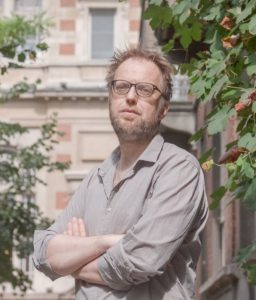
Manuel B. Aalbers is professor of Human Geography at KU Leuven, the University of Leuven (Belgium) where he leads a research group on the intersection of real estate, finance and states. He has also published on financialization, redlining, social and financial exclusion, neoliberalism, mortgage markets, the privatization of social housing, neighborhood decline and gentrification. He is the author of Place, Exclusion, and Mortgage Markets (Wiley-Blackwell, 2011) and The Financialization of Housing: A Political Economy Approach (Routledge, 2016) and the editor of Subprime Cities: The Political Economy of Mortgage Markets (Wiley-Blackwell, 2012). He is also the associate editor of the Encyclopedia of Urban Studies (Sage, 2010) and editor-in-chief of geography journal TESG. Most of his papers can be downloaded from https://kuleuven.academia.edu/ManuelAalbers. Finally, Manuel is also one of the founding members of FinGeo.net, the Global Network on Financial Geography.
Foreign aid is being de-centred as the emblematic funding of the ‘Development’ sector. Debates about the amount, governance and effectiveness of aid are now eclipsed by the surging interest in and energy around broader – and more nebulous – forms of financing for development. This includes impact investing, blended finance, and various ‘innovative’ financial mechanisms. In this seminar, we will first briefly contextualise and analyse this shift. We then turn to a detailed analysis of one specific case study. The International Finance Facility for Immunisation (IFFIm) issues vaccine bonds, and is a widely celebrated example of ‘innovative’ finance in global health and development. IFFIm has played a leading role in developing social bonds and funding global health, securing over $8 billion in donor commitments, and disbursing over $3 billion to date to Gavi, The Vaccine Alliance, since its launch in 2006. Adopting a ‘follow the money’ approach, we set out a significant, evidence-based challenge to some of the dominant development claims around innovative development finance more widely, and IFFIm in particular. We find evidence of non-trivial private profit-making, hiding in plain sight, at the expense of beneficiaries and donors. Through advanced critical financial analysis, we reveal precisely who benefits and by how much. Our analysis shows in detail how financialization reduces political control over aid, and the uneven spatial distribution of material rewards and political power. We finish by showing that alternative models for vaccine finance are possible, which are cheaper while still achieving the much vaunted ‘front-loading’ effect of IFFIm.
Speakers:
Sarah Hughes-McLure, University of Cambridge, UK
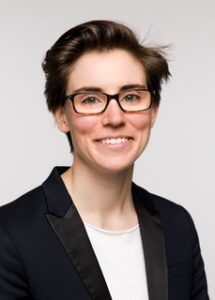
Sarah Hughes-McLure is a PhD candidate at the University of Cambridge. Her PhD is on development finance in a ‘beyond aid’ era, specifically the role of the private sector, private finance, and ‘innovative’ financing for development. As part of her research on the financialisation of development, Sarah has followed the money through case studies in global health, natural disasters, and finance. More broadly, her research is situated in economic geography and development geography. Sarah is part of an ESRC-funded research project on the for-profit development sector, led by Professor Mawdsley. Before starting her PhD, Sarah was a Consultant at the Boston Consulting Group and studied Economics at Cambridge.
Emma Mawdsley, University of Cambridge, UK

Emma Mawdsley is a Professor of Human Geography at Cambridge University, and the Director of the Margaret Anstee Centre for Global Studies at Newnham College, Cambridge. She works on the politics of global development, with a particular interest in India, the UK, and ‘South-South’ Cooperation. She is currently PI on an ESRC-funded research grant, working with colleagues on the for-profit development sector.
Speaker: Shaina Potts, UCLA, USA
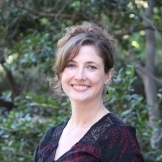
(Ph.D, UC Berkeley, 2017) Shaina Potts is an Assistant Professor in Geography and Global Studies, with research interests in post-colonial sovereign debt relations; financial, legal and political geographies; international political economy; American empire; and the politics of territory. She teaches classes on globalization, border studies, nationalism, political geography, and political economy.
Chair: Dariusz Wójcik, University of Oxford, UK

Dariusz Wójcik is an economic geographer, specializing in financial geography. He has published three books and over forty articles and book chapters in leading journals and edited volumes. In the last five years he has won several research grants with a value of over £2m as principal or co-principal investigator in the UK and abroad, including a major grant from the Research Grants Council Hong Kong, which allows him to co-lead one of the largest ever research projects on financial centre development in co-operation with lawyers and economists. His contribution to research has been recognized by nominations to the editorial board of Economic Geography and the Journal of Economic Geography, the leading journals in the field, and visiting appointments at the universities in Beijing, Hong Kong, Singapore, and Sydney. He has been involved in shaping the future of economic geography by organizing international and interdisciplinary seminars, and acting as a member of the International Advisory Board for the Third Global Conference on Economic Geography, Seoul 2011. In August 2015, he chaired the Fourth Global Conference in Economic Geography, which gathered over 670 delegates from more than 60 countries, making it the largest ever event dedicated to economic geography. At the Conference he co-organised the launch of the Global Network on Financial Geography. Beyond academia he has applied his research to influence financial management and corporate governance at public and private institutions. His research has been reported in the Financial Times, Financial News, the Sunday Times, Forbes, RTÉ Ireland and the BBC World Service. Financial Times recently referred to his work presented at the Fourth Global Conference on Economic Geography with words: “Now it is the turn of geographers” (John Authers, FT, 20 August 2015, page 28).
His recent book The Global Stock Market: Issuers, Investors and Intermediaries in an Uneven World (OUP 2011) offers a comprehensive picture of the global stock market by focusing on the relationships between issuers, investors, and intermediaries and how these relationships impact the performance of stock markets and the economy of cities, countries, and the world. The book uses rich data and global case studies to examine the rise of emerging markets, the impact of the global financial crisis, the revolution in the stock exchange business model, and the continued dominance of London and New York as financial centres. The Geography of Finance: Corporate Governance in a Global Marketplace (OUP 2007) co-authored with Gordon L. Clark tackles crucial issues regarding the emerging global market for corporate governance. It describes and explains the transformation of European corporate governance in the light of the imperatives driving global financial markets, using and innovative analytical and empirical framework. At present he is co-editing the New Oxford Handbook of Economic Geography to be published by Oxford University Press in 2016, and preparing two monographs Financial Centres Under Pressure and Global Financial Networks and the Offshore World.
Dariusz has a Master’s Degree in Geography from Jagiellonian University (1997), Cracow, a Master’s Degree in Economics from the Cracow University of Economics (1996), and an MSc in Finance and Banking from Stockholm University (1996). He came to Oxford in 1998 as a scholar of the Open Society Institute and the Foreign and Commonwealth Office, and was awarded the University Studentship in association with Jesus College for a DPhil, completed in 2003 with a thesis entitled “Corporate Governance and Capital Market Integration in Europe: an Economic Geography Perspective”. From 2003 to 2005 he was a Junior Research Fellow at Jesus College, Oxford and an outside Lecturer at the London School of Economics and Political Science. Between January 2006 and June 2007 he was a Lecturer at the Department of Geography, the University College London. He was appointed a Lecturer at the School of Geography and the Environment and a Fellow of St Peter’s College, Oxford in July 2007. In 2015 Dariusz joined Jan Zielonka and Timothy Garton Ash on the Steering Committee of the Programme on Modern Poland, a multidisciplinary initiative to foster teaching and research on contemporary Poland, and academic relationships between Poland and Oxford University.
Dariusz is the inaugural Chair of the Global Network on Financial Geography www.fingeo.net.
Abstract:
In addition to a massive loss of life, the Coronavirus pandemic has devastated entire industries and caused untold economic suffering to workers, renters and small businesses around the world. Wealthy countries have offset some of this pain through debt-financed social spending and stimulus, leading to renewed debates about the future of neoliberal austerity beyond the pandemic. Low and middle-income countries, however, have been far more constrained, due not only to smaller total budgets but to the way existing debts to foreign creditors limit their financing options. In this talk, I consider sovereign debt relief efforts since the start of the pandemic, most notably the Debt Service Suspension Initiative. I show how past debt crises continue to shape geographies of sovereign debt under Covid-19, and I argue that the limited success of the DSSI is rooted in its replication of long-standing international approaches to sovereign debt crisis resolution that are designed to promote contract rights and creditors’ interests over substantial debt relief.
Speaker: Vladimír Pažitka, University of Oxford, UK

Vladimír Pažitka started working at the School of Geography and the Environment, University of Oxford, as a research assistant in May 2015, before beginning his doctoral studies later that year. In addition to his doctoral thesis, he has worked on several additional research projects and by the time he defended his doctoral thesis in June 2018, he had published four co-authored manuscripts. He currently works as a Research Associate in Finance and Geography on an ERC funded research project led by Professor Dariusz Wójcik. He has recently accepted a post at the Leeds University Business School of Assistant Professor in Banking and Finance, which he plans to start on May 1st, 2021.
Chair: David Bassens, Vrije Universiteit Brussels, Belgium

David Bassens, a human geographer and social & cultural anthropologist, is Assistant Professor of Economic Geography at the Geography Department of Vrije Universiteit Brussels where he acts as co-director of Cosmopolis: Centre for Urban Research. He doubles as Associate Director of Financialization of the Globalization and World Cities (GaWC) research network and is Executive Committee member and Treasurer of FINGEO, the Global Financial Geography network. David Bassens’ PhD research studied processes of world-city formation through the lens of the geographies of Islamic finance. His current work focuses on understanding processes of world-city-formation under conditions of financialized globalization, with an empirical focus on continental Europe and emerging markets. His work has been published in leading journals in the field of human geography.
Abstract:
I will discuss the insights from my research on financial centres and investment banking networks. This research has been published in a variety of journals including Economic Geography, Environment and Planning A and the Journal of Economic Geography. I primarily work with data on individual capital market transactions, which I use to build bespoke datasets covering hundreds of financial centres. I employ a variety of econometric and network analytical methods to study the impact of positioning in investment banking networks on the growth trajectories of individual investment banks as well as entire financial centres. Investment banking networks can reduce information frictions among countries and consequently increase both the volume and propensity for international trade in financial services. We have found that investment banks with a more central positioning in investment banking networks tend to grow faster and can restrict the growth opportunities of their lesser connected competitors. Naturally, many challenges and unanswered questions remain in this field of research. How will London be affected by BREXIT? Will Shanghai become one of the world’s leading international financial centres? Will the Covid-19 pandemic radically reshape the spatiality of finance? I am hoping to contribute to answering these questions in the future and I hope that others will join.
Speaker: Jessie Poon, University at Buffalo, USA

Jessie P.H. Poon is Professor of Geography at the University at Buffalo, New York. She is currently an editor of Environment and Planning A. She was the North American editor of Papers in Regional Science from 2002 to 2006. She has published over 100 papers on multinational firms’ locational strategies, foreign direct investment, trade, and technological upgrading dynamics in Asia.
Abstract:
Until recently, financial globalization is thought to encourage state atrophy from neoliberal logics of privatization. Yet under President Obama, financial regulations in the United States (US) tightened than loosened. This paradoxical trend – re-regulation alongside spread of global finance – is captured in regulatory capitalism theory which posits that states have not retreated in their delivery of regulation in contemporary capitalism, but have transformed the organizational capacity of regulation itself. The presentation seeks to explain the financial organizational capacity of US regulations in the context of economic sanctions. Examining the geography of surveillance by US and Singapore, I show how state public agencies and regulatory intermediaries do the work of sanctions rule-making and enforcement through a multiscalar arrangement of financial control. Together, state and non-state agents help diffuse cognitive understandings of US sanctions while designing symbolic structures of financial compliance that track and monitor regulatory evasion globally. I further draw attention to financial compliance professionals as local control sites, and highlight the scalar division of labor that supports US’ geopolitical aspirations.
Chair: Karen Lai, Durham University, UK

Karen Lai is Associate Professor/Reader at the Department of Geography, Durham University. Her research interests include geographies of money and finance, global cities, FinTech, service sectors and market formation, focusing particularly on issues of financialisation, knowledge networks and financial centre development. Her recent projects examine everyday financialisation through the knowledge networks of financial advisors and consumers, and the global financial networks of investment banks and law firms in Asia. She is currently working on FinTech to examine the changing relationships between financial institutions and technology firms, and impacts on the development of financial centres. She serves on the Executive Committees of the Global Network on Financial Geography (FinGeo) and the Economic Geography Research Group of the Royal Geographical Society (with Institute of British Geographers). She is also on the journal editorial boards of Geoforum and Geography Compass (Economic section).
Speaker: Vincent Guermond, Royal Holloway, University of London, UK

Vincent is a Research Associate at Royal Holloway, University of London. He is involved in a Global Challenges Research Fund (GCRF) study in Cambodia and India (Tamil Nadu) which is taking a gendered lens to explore the relationship between climate resilience, credit-taking, and nutrition.
Prior to joining Royal Holloway, Vincent completed his PhD at Queen Mary University of London (QMUL). His PhD thesis explores a global migration-development agenda that aims to leverage remittances for development by incorporating remittance flows and households into global financial circuits. Based upon ten months of fieldwork in Senegal and Ghana, his research foregrounds a ‘hybrid’ understanding of uneven and contested geographies of financial incorporation in the global South that requires an integrative approach across economic, financial and development geography.
Chair: David Bassens, Vrije Universiteit Brussels, Belgium

David Bassens, a human geographer and social & cultural anthropologist, is Assistant Professor of Economic Geography at the Geography Department of Vrije Universiteit Brussels where he acts as co-director of Cosmopolis: Centre for Urban Research. He doubles as Associate Director of Financialization of the Globalization and World Cities (GaWC) research network and is Executive Committee member and Treasurer of FINGEO, the Global Financial Geography network. David Bassens’ PhD research studied processes of world-city formation through the lens of the geographies of Islamic finance. His current work focuses on understanding processes of world-city-formation under conditions of financialized globalization, with an empirical focus on continental Europe and emerging markets. His work has been published in leading journals in the field of human geography.
Abstract:
Arising from the consensus that remittances are now one of the most important sources to finance development, the last fifteen years have witnessed the emergence of a Global Remittance Agenda (GRA) that encourages the incorporation of remittances as well as their senders and recipients into global finance. Critical analyses of the GRA have emerged over the past few years calling into question the market-based approach to the project and its prioritising of the political and financial concerns of a broad coalition of global and national actors over the needs of migrant men and women and the people they send remittances to. While being sympathetic to these political economy takes on the ‘financialisation of remittances’, I question the extent to which remittances, as well as remittance senders and recipients, can be qualified as financialised yet. More specifically, I argue that little is said in the existing literature about the intricate and grounded operations that are required for such projects to materialise, leaving finance and the concrete formation of (remittance) markets black-boxed. Drawing upon research with institutional and private sector actors involved in the remittance, finance and FinTech industry as well as with remittance recipients in Senegal and Ghana, I make two key arguments. First, I put a light on the technical, legal, financial and behavioural engineering that is necessary for remittance markets to realise and show that these market-making processes are contingent, fragile, contested and always in the making. Second, I show how attempts at marketising remittances lead to processes of domestication, subversion and dissent from a various set of actors, including remittance recipients.
Speaker: Raquel Rolnik, University of São Paulo, Brazil

Full Professor at the Faculty of Architecture and Urbanism at the University of São Paulo. Graduated in Architecture and Urbanism from the University of São Paulo (1978), Master in Architecture and Urbanism from the University of São Paulo (1981), PhD in Graduate School Of Arts And Science History Department – New York University (1995), free teaching by FAUUSP (2015) and Titration by FAUUSP (2017). Since 1979 she has been a university professor in the field of architecture and urbanism, and is currently head of the Design Department at the Faculty of Architecture and Urbanism at USP. Urbanist, she was Planning Director for the city of São Paulo and consultant for Brazilian and Latin American cities in urban and housing policy. She was also the National Secretary for Urban Programs at the Ministry of Cities between 2003 and 2007. She was International Rapporteur on the Right to Adequate Housing at the UN Human Rights Council (2008-2014). She is the author of books and articles on the urban issue and since 2011, she has a research productivity scholarship from CNPq 1C.
Chair: Dariusz Wójcik, University of Oxford, UK

Dariusz Wójcik is an economic geographer, specializing in financial geography. He has published three books and over forty articles and book chapters in leading journals and edited volumes. In the last five years he has won several research grants with a value of over £2m as principal or co-principal investigator in the UK and abroad, including a major grant from the Research Grants Council Hong Kong, which allows him to co-lead one of the largest ever research projects on financial centre development in co-operation with lawyers and economists. His contribution to research has been recognized by nominations to the editorial board of Economic Geography and the Journal of Economic Geography, the leading journals in the field, and visiting appointments at the universities in Beijing, Hong Kong, Singapore, and Sydney. He has been involved in shaping the future of economic geography by organizing international and interdisciplinary seminars, and acting as a member of the International Advisory Board for the Third Global Conference on Economic Geography, Seoul 2011. In August 2015, he chaired the Fourth Global Conference in Economic Geography, which gathered over 670 delegates from more than 60 countries, making it the largest ever event dedicated to economic geography. At the Conference he co-organised the launch of the Global Network on Financial Geography. Beyond academia he has applied his research to influence financial management and corporate governance at public and private institutions. His research has been reported in the Financial Times, Financial News, the Sunday Times, Forbes, RTÉ Ireland and the BBC World Service. Financial Times recently referred to his work presented at the Fourth Global Conference on Economic Geography with words: “Now it is the turn of geographers” (John Authers, FT, 20 August 2015, page 28).
His recent book The Global Stock Market: Issuers, Investors and Intermediaries in an Uneven World (OUP 2011) offers a comprehensive picture of the global stock market by focusing on the relationships between issuers, investors, and intermediaries and how these relationships impact the performance of stock markets and the economy of cities, countries, and the world. The book uses rich data and global case studies to examine the rise of emerging markets, the impact of the global financial crisis, the revolution in the stock exchange business model, and the continued dominance of London and New York as financial centres. The Geography of Finance: Corporate Governance in a Global Marketplace (OUP 2007) co-authored with Gordon L. Clark tackles crucial issues regarding the emerging global market for corporate governance. It describes and explains the transformation of European corporate governance in the light of the imperatives driving global financial markets, using and innovative analytical and empirical framework. At present he is co-editing the New Oxford Handbook of Economic Geography to be published by Oxford University Press in 2016, and preparing two monographs Financial Centres Under Pressure and Global Financial Networks and the Offshore World.
Dariusz has a Master’s Degree in Geography from Jagiellonian University (1997), Cracow, a Master’s Degree in Economics from the Cracow University of Economics (1996), and an MSc in Finance and Banking from Stockholm University (1996). He came to Oxford in 1998 as a scholar of the Open Society Institute and the Foreign and Commonwealth Office, and was awarded the University Studentship in association with Jesus College for a DPhil, completed in 2003 with a thesis entitled “Corporate Governance and Capital Market Integration in Europe: an Economic Geography Perspective”. From 2003 to 2005 he was a Junior Research Fellow at Jesus College, Oxford and an outside Lecturer at the London School of Economics and Political Science. Between January 2006 and June 2007 he was a Lecturer at the Department of Geography, the University College London. He was appointed a Lecturer at the School of Geography and the Environment and a Fellow of St Peter’s College, Oxford in July 2007. In 2015 Dariusz joined Jan Zielonka and Timothy Garton Ash on the Steering Committee of the Programme on Modern Poland, a multidisciplinary initiative to foster teaching and research on contemporary Poland, and academic relationships between Poland and Oxford University.
Dariusz is the inaugural Chair of the Global Network on Financial Geography www.fingeo.net.
Abstract:
2008 post-crisis global scenario is marked by market shifts and opportunities for investors to move their liquid capital freely across borders and sectors. Built space in general and housing, in particular, became again one of the new frontiers of speculation and rentiership. The same housing crisis in some cities in Europe and North America which resulted from the financialization of housing in the mortgage/homeownership phase became the basis to roll out a new asset class based on rental housing. New information technologies enabled investors to concentrate ownership of dispersed units, extract income flows and data and bundle them into capital markets, in operations managed by digital platforms and apps. Those changes enabled a new form of financialization of housing from above – via partnerships between corporate landlords and the State not only in those cities, but spreading over the world, with the active role of States in promoting it, including by designing new planning and housing policies. However, those chains of rentiership also generated new and perverse links between labor precarity, informality and financial capital, generating housing financialization not only from above, but from bellow, imposing new dynamics in popular economies.
Open the fortress! When financial Centre and Urban Development Collide – The Case of Luxembourg-City, Luxembourg
The seminar gives an overview of urban dynamics in Luxembourg City, the small-but-global capital of the Grand Duchy of Luxembourg, one of Europe’s leading financial centres. Recent debates have revolved around the consequences of Brexit and also COVID-19, underlining the dependence of the small country on the flows of workforce, currency and commodities from abroad. Moreover, seven years after the Luxleaks-revelations, the ‘OpenLux’ media coverage of February 2021 has shed some critical light on Luxembourg’s business model, emphasising the hidden nature of parts of the country’s financial sector.
Less recognised by observers from the outside are the urban-regional ramifications of the country’s development trajectory, most notably excessive mobility (including cross-border commuting), the commodification and exploitation of land, and a structural housing crisis. In spatial terms, Luxembourg’s business model presents a strong determination for providing office real-estate and accessibility, most recently complemented by large-scale urban development projects (including high-end housing). A sustainable development pathway for the Grand Duchy and its capital is increasingly discussed, but the political economy remains remarkably absent from such discourses. Current and future plans are still determined by the country’s fine-tuned growth ecology and its secretive mode of governance at both national and local levels.
Speaker: Markus Hesse, University of Luxembourg, Luxembourg

Markus Hesse is a professor of urban studies at the University of Luxembourg’s Department of Geography and Spatial Planning. His academic background is in geography (University of Münster, Germany) and spatial planning (PhD at the University of Dortmund), and he obtained a post-doctoral degree in human geography from the Freie Universität Berlin. While his research interests focus on a broad range of topics in urban development and metropolitan governance, a common thread of this research is concerned with the interplay of spaces and flows, for example with regard to logistics in a spatial context. A recent research project studied the emergence of “relational cities” in Europe and South East Asia, namely Geneva (Switzerland), Luxembourg City, and Singapore. A particular research emphasis is placed on the science-policy interface in urban planning and governance. Markus Hesse is an elected member of the Academy for Spatial Research and Planning (ARL) in Germany and Fellow of the Royal Geographical Society of the UK. He sits on various advisory boards and scientific councils.
Shanghai, like other large Chinese cities, has multiple business districts. This paper examines the construction of one of its largest, at Hongqiao in the west of the city. Hongqiao is one of China’s biggest urban projects, rivalling some of the new CBDs in Guangzhou and Beijing in terms of service sector development.Its specific focus lies in the central role played by one state-owned company, Shenhong, in the financing and construction firstly of the Hongqiao transport hub and then of the business district that make up this new development pole.
A common feature of this type of mega urban project is the establishment by government of what are commonly called Urban Investment and Development Companies (UIDC) to operate the projects on behalf of government.
The paper examines in detail Shenhong as an organization as well as the tasks it has undertaken and the funding difficulties it has confronted. The paper has three aims. The first is simply to present a detailed account of the makeup of an IUDC and its relationship with its partner organizations. The second is to provide an insight into the struggle that one IUDC has faced in finding the funding to undertake the projects it was entrusted with in the face of stop-go policies on credit from central government. The third and preeminent aim is to set the IUDC within a wider theoretical framework, arguing that Shenhong and the many other similar companies that are orchestrating the high-rise urbanization of China should be seen as a manifestation of state corporatist urbanism, a latter-day version of the local-state corporatism that Jean Oi identified in the 1990s. It argues that Shenhong is representative of the seldom discussed state-owned Urban Investment and Development Companies that have led the urbanization of China. Shenhong was the arm of the Shanghai Municipal Government in the construction of the Hongqiao project. It was financed by state banks; it sub-contracted its ‘dirty work’ of demolition to other state entities and of compensation and relocation to local government; it handed over management to an administrative authority of the state; this organization in turn called on the help of state-owned firms to make the initial real estate and development investments. Finally, in referring to this as state corporatist urbanism, we are adapting the conventional definition of corporatism. That is, rather than seeing corporatism as the co-optation by the state of non-state organizations for its own ends, we are describing a sort of inside-out corporatism in which the state adopts some of the trappings of the corporate sector in order to engineer urban growth. This is a corporatism which, in line with Oi’s reading, uses state formations to undertake on behalf of the city government the entrepreneurial activities that would otherwise be largely entrusted to the private sector.
Speaker: Yanpeng Jiang, East China Normal University, China

Yanpeng Jiang is currently based at East China Normal University as research professor. He received his PhD in Geography from the University of Leeds. Before joining the Department of Geography at the University of Hong Kong as a research fellow, he worked as a fellow in the College of Asia and the Pacific, Australian National University. His main research interests are urbanization, financialization of mega urban projects and social change and governance in contemporary China as well as comparative urban studies, development of global cities and inter-city competition, regional industrial transformation and upgrading in the Asia-Pacific region. He published a series of papers in top journals of International Journal of Urban and Regional Research, Environment Planning A, Environment Planning C, Urban Studies, Journal of Peasant Studies etc.
Governance is a word that is increasingly heard and read in modern times, be it corporate governance, global governance, or investment governance. Investment governance refers to the effective employment of resources—people, policies, processes, and systems—by an individual or governing body (the fiduciary or agent) seeking to fulfill their fiduciary duty to a principal (or beneficiary) in addressing an underlying investment challenge. Throughout COVID-19, the financial sector’s place in the economy and its methods and ethics have (again) been under scrutiny. Coupled with these challenges, the task of investment governance is of increasing importance due to the sheer weight of money, the retirement savings gap, demographic trends, regulation and activism, and rising standards of behaviour based on higher expectations from those fiduciaries serve. These trends are at the same time related and self-reinforcing. Based on our recent CFA Institute Research Foundation monograph, Investment Governance for Fiduciaries (Drew & Walk, 2019), we will examine how trustees from some of the world’s largest pool of funds, fulfil their fiduciary duties when addressing investment challenges and explore frameworks for good governance of ‘other people’s money’. The seminar will consider the significance of investment governance; catalysts and responses; achieving outcomes for beneficiaries; and, best practice stewardship.
Speaker: Michael Drew, Griffith University, Australia

Michael E. Drew is managing partner of MGD Private and professor of finance at Griffith University. He is a financial economist specializing in the areas of investment governance, pension plan design, and outcome-oriented investing. Professor Drew’s research has been published in leading practitioner journals, including the Financial Analysts Journal and the Journal of Portfolio Management. He has been invited to make submissions and to testify before numerous committees, including the US Department of Labor and the SEC joint hearing on target-date funds. Professor Drew serves as a trustee director and member of the investment committee at QSuper, is a member of the Investment Advisory Board of the Petroleum Fund of Timor-Leste, and a trustee of Mary Aikenhead Ministries. He received his PhD in economics from the University of Queensland, is an Accredited Investment Fiduciary Analyst®, and is a Life Member of FINSIA, the Financial Services Institute of Australasia.
This paper analyses the implications of Brexit for financial geographies in the EU. Popular and media attention has focused on the relocation of some jobs and assets from London to European financial centres. These reports argue that such relocations are a response to the additional regulatory requirements and costs of accessing the EU’s single market in financial services from London from 1 January 2021 but leave activities within financial institutions relatively black boxed. I argue that greater attention needs to be paid to how Brexit not only triggers the relocation of existing corporate activities but is also reshaping corporate geographies themselves as financial institutions respond to the additional trade friction in services between the UK and the EU. Focusing on two elements of London’s financial services ecosystem, banking and asset management, I examine how the relatively limited relocation of activities to the EU is partly explained by the ways in which firms are responding by adjusting their business models to reflect London’s new position outside of the EU. In so doing, I develop a sympathetic critique of work in financial geography on financial firms, arguing that more attention needs to be paid to how the organisation of financial institutions is shaped in important ways by regulatory boundaries. Whilst I develop this framework in the context of Brexit, we suggest that it is applicable to wider work in economic and financial geography.
Speaker: Sarah Hall, University of Nottingham, United Kingdom

Sarah Hall is a Professor of Economic Geography at the University of Nottingham. Supported by funding from the ESRC, the British Academy, The Leverhulme Trust and the Nuffield Foundation, her research centres on financial services in the UK, London’s international financial district and its relations with Europe, China and North America. Her research has been covered my leading media outlets including The Financial Times, the BBC, The New York Times, The Daily Telegraph and Wired magazine. She is the author of Global Finance (Sage 2017) and Respatialising Finance (Blackwell 2021). She was appointed an Editor of Geoforum in 2013 and held a British Academy Mid Career Fellowship (2015-2017). She is currently a Senior ESRC Fellow with The UK in a Changing Europe where her work focuses on Brexit and the UK’s financial services sector. She was elected a fellow of The Academy of Social Sciences in 2020.
The conversion of industrial properties into trendy urban spaces for culture and creative industries and residential uses, known as loft-living, has transformed the urban landscapes and socioeconomic configurations of North American and European postindustrial cities since the 1970s. In recent years, a new wave of loft conversion is surging in post-industrial Chinese cities, especially such megacities as Beijing and Shanghai, mainly in the form of long-term rental apartments combined with co-working spaces for young professionals. Featuring an active state involvement and the financialisation of rental housing, this burgeoning loft-living dynamic in Chinese mega cities is closely linked with the ‘fifth wave’ gentrification, while deriving from a unique politico-economic context. Drawing on a pioneering loft-living project in Beijing operated by Longfor Properties, a leading real estate developer also a forerunner of long-term rental apartments in China, this research examines how a creative spatiotemporal fix was initiated by the national state and Beijing government through urban land market and financial (de)regulations, and subsequently enabled by corporate landlords’ thronging into the private rental market. Taking advantage of the policy loopholes to usher in a rapid process of financialisation of rental housing, corporate landlords accumulate financial capital through asset-backed securitisation, while young professionals have burdened higher housing cost and precarity.
Speaker: Shenjing He, University of Hong Kong, Hong Kong, China

Shenjing He is Professor of Urban Studies in the Department of Urban Planning and Design, and Director of the Social Infrastructure for Equity and Wellbeing (SIEW) Lab at Faculty of Architecture, The University of Hong Kong. She has published widely on various topics of urban and housing studies, including urban redevelopment/gentrification, enclave urbanism, urban governance, financialisation of housing, housing inequalities, and rural-urban interface. Shenjing recently launches a research project to investigate the emerging forms of neighbourhood order, including for example, gated communities featuring privileged access to education service and another project to examine multi-dimensional housing inequalities under financialisation in pandemic-stricken megacities.
Care for ageing populations has been seen as a major economic burden, but also as a promising venue for financial investment – attracting a range of private equity firms, hedge funds and real estate investment trusts. This talk draws on empirical research in the UK. I discuss the division of labour that occurs as nursing homes are transformed into more liquid financial assets. Investors have sought to standardise care properties to make them more calculable and profitable. Such standardisation imposes more labour on those who work and live in these spaces, generating tensions and risks. A further major shock to the sector has come in the form of the covid-19 pandemic, which has taken a devastating toll on care homes. Findings from new collaborative research shed light on the financial impacts of the pandemic on care homes across the UK. What are the future prospects for these investments and alternative approaches to financing care?
Speaker: Amy Horton, University College London, United Kingdom
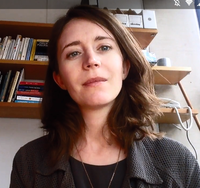
Amy Horton is a lecturer in economic geography at University College London. Her research examines the political economy of care and support for older people. She is the co-investigator on ‘Understanding the financial impact of COVID-19 on the UK care home sector – implications for businesses and the workforce’. Previous research has examined the influence of financialised business models on working conditions and the built environment for care in England, as well as the approaches of trade unions and community organisations to valuing care in both the UK and US.
In this paper, we estimate and evaluate the scale and impact of wealth chain investment coming from offshore jurisdictions in a deprived urban context, focusing on the purchase of real estate in the Merseyside Area in the Northwest of England. We use HM Land Registry property sales data alongside the insights of local councillors, housing activists, and academics to identify the role of offshore finance in the area. We highlight how methods of anonymous purchasing and the quest for above normal rents operate even within a context of depressed house, commercial, and other land values. The study contributes an empirical case study helping to give empirical flesh to the bones of emerging discussions regarding the role of offshore finance in regional economies, even in highly deprived locales that nevertheless appear to offer significant opportunities for rental income and tax-avoiding capital operations.
Co-authored by Roland Atkinson, Sheffield University, UK; Sharda Rozena, Leicester University, UK; Andrea Ingianni, Kingston University,UK
Speaker: Rex A. McKenzie, Kingston University, UK
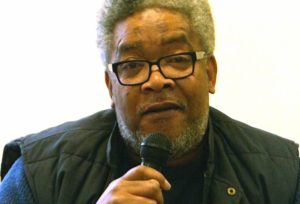
Rex McKenzie was trained at the New School for Social Research in New York USA. His 2006 Ph.D. thesis was entitled Three Essays in the Political Economy of the English Speaking Caribbean. He has held Lecturer, Assistant Professor and Senior Researcher posts in Economics at the University of Technology, Kingston, Jamaica, Purchase College, SUNY, New York, USA, and the University of Witwatersrand, Johannesburg, South Africa. Before academia, he was a professional Foreign Exchange Dealer for sixteen years and this professional experience connects to his research activities in the area of Global Political Economy.
He is a 2021-2022 Trust for London (TFL) grantee and lead the Wealth Chains Project (WCP). The WCP is a collaboration of social science researchers from different universities aimed at gaining a greater understanding of the relationship between property investment coming from offshore tax havens and socio-economic inequality in London.
Chair: Manuel Aalbers, KU Leuven, Belgium
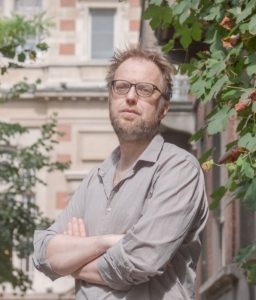
Manuel B. Aalbers is professor of Human Geography at KU Leuven, the University of Leuven (Belgium) where he leads a research group on the intersection of real estate, finance and states. He has also published on financialization, redlining, social and financial exclusion, neoliberalism, mortgage markets, the privatization of social housing, neighborhood decline and gentrification. He is the author of Place, Exclusion, and Mortgage Markets (Wiley-Blackwell, 2011) and The Financialization of Housing: A Political Economy Approach (Routledge, 2016) and the editor of Subprime Cities: The Political Economy of Mortgage Markets (Wiley-Blackwell, 2012). He is also the associate editor of the Encyclopedia of Urban Studies (Sage, 2010) and editor-in-chief of geography journal TESG. Most of his papers can be downloaded from https://kuleuven.academia.edu/ManuelAalbers. Finally, Manuel is also one of the founding members of FinGeo.net, the Global Network on Financial Geography.
In recent years, financial institutions have evinced a growing demand for agricultural properties. This presentation explores some of the ways in which this phenomenon is currently playing out in the U.S. First—and primarily—I will present on research which examines how investors seek to “render land investible” (Li 2014) in spite of the environmental uncertainty associated with climate change, groundwater depletion, and changing water regulations. This research involved a case study from California’s Cuyama Valley, where the Harvard University endowment purchased 8000 acres of dry rangeland for use in creating an irrigated vineyard. This case, I argue, reveals how investors may be able to turn environmental uncertainty into an advantage. In this case, the material and legal uncertainties of groundwater access provided investors with a potentially lucrative opening to assert their preferred land imaginaries and improve their property values. Second, I will briefly discuss some ongoing research on farmland investment in the Mississippi Delta. Investors are increasingly flocking to the Delta, which some bill as being climactically similar to California but without the water scarcity issue. This region of the US, however, has a unique geography of racialized dispossession, which shapes the opportunities for acquiring land and for contesting those acquisitions.
Speaker: Madeleine Fairbairn, University of California, Santa Cruz, USA
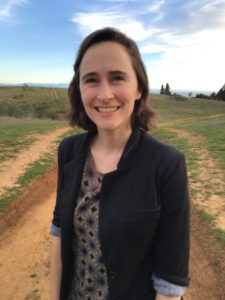
Madeleine Fairbairn, PhD, is a sociologist and associate professor in the Environmental Studies Department at the University of California, Santa Cruz. She studies the political economy of agriculture, including the financial sector’s growing interest in farmland and, more recently, the Silicon Valley agri-food tech sector. Her first book, Fields of Gold: Financing the Global Land Rush was released in July, 2020 from Cornell University Press.
Chair: Stefan Ouma, University of Bayreuth, Germany
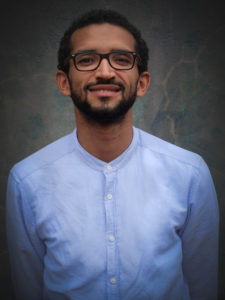
Stefan Ouma holds the Chair of Economic Geography at the Department of Geography at the University of Bayreuth. His research interests lie in a theoretically and empirically informed economic geography of globalization and development, drawing primarily on insights from heterodox economics, political ecology, and post- and decolonial work. He has published on political economy and ecology of global commodity chains and the financialization of land and agriculture. His research foci include Ghana, Kenya, Tanzania and New Zealand.
Insurance-linked securities (ILS) and related property catastrophe reinsurance market instruments are increasingly positioned by states, development agencies, and financial institutions alike as crucial mechanisms for governing climate change through finance. This talk examines how the expanding market for ILS constitutes, and is constituted by, interconnected yet distinct urban political economies and ecologies, as illuminated by the uses of ILS in the South Florida and Singapore contexts. Singapore’s first SEC Rule 144-A ILS issuance, “First Coast Re Pte” (2019), raised $100 million of investor capital to finance catastrophe risk enmeshed within thousands of Florida residential real estate insurance policies. First Coast Re is taken as a transactional space from which to evaluate how and why particular urban sites and processes come to be central to the assembly and extension of climate finance geographies, and what this portends for the particular urban and regional futures entangled therein. Whereas South Florida insurers tap ILS capital to export excessive financial risks concentrated in the region’s high value, disaster-prone real estate market, Singapore actors leverage exposure from South Florida to consolidate the city-state’s position as an international financial center and to promote reinsurance as a stabilizing force in Southeast Asia.
Speaker: Zac Taylor, TU Delft, The Netherlands

Zac Taylor is a Postdoctoral Researcher in the Faculty of Architecture and the Built Environment at Delft University of Technology. They research urban climate risk governance within the real estate-finance system from the vantages of South Florida, Singapore, and the Netherlands, and co-facilitate the Urban Climate Finance Network (www.urbanclifi.com). Zac’s recent work can be found in Environment and Planning A and the Cambridge Journal of Regions, Economy and Society.
Chair: Manuel Aalbers, KU Leuven, Belgium

Manuel B. Aalbers is professor of Human Geography at KU Leuven, the University of Leuven (Belgium) where he leads a research group on the intersection of real estate, finance and states. He has also published on financialization, redlining, social and financial exclusion, neoliberalism, mortgage markets, the privatization of social housing, neighborhood decline and gentrification. He is the author of Place, Exclusion, and Mortgage Markets (Wiley-Blackwell, 2011) and The Financialization of Housing: A Political Economy Approach (Routledge, 2016) and the editor of Subprime Cities: The Political Economy of Mortgage Markets (Wiley-Blackwell, 2012). He is also the associate editor of the Encyclopedia of Urban Studies (Sage, 2010) and editor-in-chief of geography journal TESG. Most of his papers can be downloaded from https://kuleuven.academia.edu/ManuelAalbers. Finally, Manuel is also one of the founding members of FinGeo.net, the Global Network on Financial Geography.
Generating decent employment plays a key role in the creation of a new social contract and social cohesion in sub-Saharan Africa. The crucial question is thus, how to create more decent jobs? Much of the extant research has focused on the role of states and businesses in shaping employment relations. In this paper, we draw attention to a third type of actor that has been largely absent in the literature on the determinants of employment relations in developing countries, namely the role of financial institutions. Based on data from 38 interviews of Kenyan manufacturing firms, financiers, and labour representatives before and during the Covid 19 pandemic, we examine the relationship between the patience of capital and labour relations. In particular, the evidence presented in this paper suggests that access to more patient sources of capital may help to enhance the quantity and quality of jobs in African countries. We discuss three mechanisms through which this occurs. Our paper contributes to a growing body of research on patient capital which largely focuses on countries of the Global North by extending it to the context of lower income African countries and speaks to broader debates about how to enhance the contribution of finance capital to social cohesion.
This research has been co-authored with Dr. Florence Dafe – TUM School of Governance, Technical University, Munich
Speaker:
Radha Upadhyaya, University of Nairobi, Kenya

Radha Upadhyaya is Research fellow at the Institute for Development Studies, University of Nairobi. She has a PhD and MSc in Economics from SOAS, University of London, and a BA in Economics from the University of Cambridge. She is a qualified CFA charterholder. Radha has over 16 years of teaching experience with particular focus on research philosophy & methods; finance & development and entrepreneurship & development.
She has written on the Kenyan banking sector, banking regulation in East Africa, African firms, African entrepreneurs and informality. She is on the editorial board of International Journal of Technological Learning, Innovation and Development (IJTLID).
She also has significant private and non-profit sector experience. She spent four years as the Director of a Kenyan bank and is currently a member of governance body of the Financial Sector Deeping Trust Kenya.
Chair: Stefan Ouma, University of Bayreuth, Germany

Stefan Ouma holds the Chair of Economic Geography at the Department of Geography at the University of Bayreuth. His research interests lie in a theoretically and empirically informed economic geography of globalization and development, drawing primarily on insights from heterodox economics, political ecology, and post- and decolonial work. He has published on political economy and ecology of global commodity chains and the financialization of land and agriculture. His research foci include Ghana, Kenya, Tanzania and New Zealand.
The scarcity of affordable rental housing has become a defining social issue with an increasing number of impoverished households embroiled in a vicious cycle of displaced survival marked by overindebtedness, evictions and homelessness. To deconstruct this reality, I view low-income rental housing as a historical social relation in that it is a unique commodity in capitalism that provides a necessary place for the social reproduction of labour power while being simultaneously integrated into the global dynamics of financial capitalism. This results in lucrative gains for a select minority yet leaving a majority to survive on a patchwork of monetized means including meager wages, expensive consumer credit, and inadequate social welfare payments. To engage the current dynamics reshaping rental housing as a place for the social reproduction of the working poor within financial capitalism, my talk draws on an empirically grounded analysis of Berlin, Dublin and Vienna. I argue that historical and geographical configurations of monetized power, including landlords, employers, and inter-scalar state practices have served to reproduce rental housing insecurity and silence its gendered, class and racialized underpinnings. The outcome is the everyday facilitation and normalization of urban poverty and social marginalization on one side and financial capitalism on the other.
Speaker: Susanne Soederberg, Queen’s University, Canada

Susanne Soederberg is a Professor in the Department of Global Development Studies at Queen’s University in Kingston, Ontario Canada. Dr Soederberg’s research interests are broad and varied, ranging from global development finance, global governance, corporate power, debt, urban poverty, and state theory. She has investigated these themes across many geographical spaces across the global North and global South, including Latin America, Southeast Asia, North America and Europe. Among numerous scholarly publications and special issue editorships, Dr Soederberg has authored several books, including two award-winning monographs, Corporate Power in Contemporary Capitalism (2010) and Debtfare States and the Poverty Industry (2014). Professor Soederberg has recently published a new monograph –Urban Displacements: Governing Surplus and Survival in Global Capitalism (2021) – from which her FinGeo talks draws.
Chair: Manuel Aalbers, KU Leuven, Belgium

Manuel B. Aalbers is professor of Human Geography at KU Leuven, the University of Leuven (Belgium) where he leads a research group on the intersection of real estate, finance and states. He has also published on financialization, redlining, social and financial exclusion, neoliberalism, mortgage markets, the privatization of social housing, neighborhood decline and gentrification. He is the author of Place, Exclusion, and Mortgage Markets (Wiley-Blackwell, 2011) and The Financialization of Housing: A Political Economy Approach (Routledge, 2016) and the editor of Subprime Cities: The Political Economy of Mortgage Markets (Wiley-Blackwell, 2012). He is also the associate editor of the Encyclopedia of Urban Studies (Sage, 2010) and editor-in-chief of geography journal TESG. Most of his papers can be downloaded from https://kuleuven.academia.edu/ManuelAalbers. Finally, Manuel is also one of the founding members of FinGeo.net, the Global Network on Financial Geography.
This paper outlines the ways in which sovereign regulatory authorities are responding to the challenge of FinTech’s novel platform ecologies. For some western financial regulators FinTech has Goldilocks-like qualities, as the centrality of data to platform finance business models means that they may be better suited to providing consistent, up-to-date and even real time data in line with regulatory requirements. From this perspective, platform finance business may be better able to design their systems to be ‘born regulatory compliant’, and in being data focussed, to be adaptable to changing regulatory requirements. However, the messy geographical and political realities of the world’s emergent platform finance ecologies means that FinTech will be likely be a more unruly problem-object than many financial regulators anticipate. The paper develops the argument by drawing on two cases studies: first, the UK, where FinTech has been celebrated by regulators as having the potential to be ‘just right’, and; second, China, where regulatory authorities have recently taken a more critical view of platforms and the ecologies they engender by enacting significant regulatory control to limit their power and agency.
This paper is co-authored by Paul Langley, School of Geography, Durham University, UK
Speaker: Andrew Leyshon, School of Geography, Nottingham University, UK

Andrew Leyshon is Emeritus Professor of Economic Geography at the University of Nottingham and Academic Partner Coordinator at the Midlands Engine. His research has focused mainly on money and finance and the music industry, and the emergence of diverse economies and the author and editor of numerous books that reflect these interests. They include: Reformatted: code, networks and the transformation of the music industry (Oxford University Press, 2014), which explores how P2P networks and MP3 software helped remake the musical economy, and Money/Space: geographies of monetary transformation (with Nigel Thrift, Routledge 1997), which argued that not only does money have a geography, but that it is inherently geographical. He is currently undertaking research on the emergence of platform ecologies in both the financial and music industries.
Chair: Stefan Ouma, University of Bayreuth, Germany

Stefan Ouma holds the Chair of Economic Geography at the Department of Geography at the University of Bayreuth. His research interests lie in a theoretically and empirically informed economic geography of globalization and development, drawing primarily on insights from heterodox economics, political ecology, and post- and decolonial work. He has published on political economy and ecology of global commodity chains and the financialization of land and agriculture. His research foci include Ghana, Kenya, Tanzania and New Zealand.
This paper proposes an investigation of blockchain technologies – understood as money infrastructures – from the point of view of the ecologies that these infrastructures produce. In fact, infrastructures scholar Susan Leigh Star described infrastructures as fundamentally ecological, i.e. fluid and highly power-fraught technological apparatuses (Star 1995; Coeckelbergh 2013). The concept of ecology also highlights the interplay between materialities and cultures, practices, imaginaries, mystics, and affects in determining an infrastructure’s disposition (Easterling 2014). The concept of ecology also has a history in financial geography: ecology, understood more as “ecological niche” has allowed to investigate financial networks and communities in a way that is context-specific and place-specific, variegated and highly contingent (Lai 2016; Leyshon et al. 2004; 2006; Langley and Leyshon 2017). Combining these two strands of literature, then, this paper explores the birth and expansion of blockchain industries with an eye on the processes of co-evolution of these technologies alongside other technological innovations – e.g., FinTech, alternative monetary systems, and “legacy” payment infrastructures. It also illustrates the geographically diverse landscape of regulatory interventions and industrial consolidations. It, finally, explores the role of cultures, stories, and discourses – what Çalışkan (2020) calls “intangible materiality” of payment infrastructures and platforms – in shaping this industry.
Speaker: Ludovico Rella, Durahm University, UK

Ludovico studied in Florence, Lund, and Durham, and he currently is a Postdoctoral Research Associate in the ERC project Algorithmic Societies, Ethical Lives in the Machine Learning Age, at the Department of Geography at Durham University. His doctoral research focused on the intersection between economic geography of money and finance, digital geography, social theory of money, cultural and political economy, and science and technology studies of infrastructures, and it developed an infrastructural conceptualization of money to capture the spatial and political dimension of money’s circulation. He published in English and Italian in the International Encyclopedia of Human Geography, Journal of Cultural Economy, Frontiers in Blockchain, Esercizi Filosofici. His current research covers macro-economic applications of Machine Learning and Artificial Intelligence, and the relationship between Machine Learning models, software, an
How can an unforeseen crisis like COVID-19 be a bumper year for real estate? In the United States, transactions, pricing, and new construction came to a brief pause with the onset of the pandemic but have since skyrocketed. Last year, the issuance of commercial mortgage-backed securities rose to its highest volume since 2007. Demand for assets is so strong that speculators are buying them in the “metaverse,” a completely virtual, imagined space. Record returns contrast sharply with the vacancies, evictions, business closures, and misery occurring simultaneously.
Speaker: Rachel N. Weber, University of Illonois Chicago, USA

My talk will examine the importance of expectancy in real estate speculation and valuation. Based on several years of ethnographic fieldwork and participant observation among a gamut of speculators from global property firms to investment funds to small land flippers, my research traces several connections between predictive knowledge practices like forecasting and property investment. I investigate the performativity of future imaginaries and how they affect the decisions of speculators in the present. Specifically, I show how discontinuities like the pandemic do not break the models and disrupt their inherently optimistic notions of growth, but instead how such imaginaries become even more compelling guides for conjuring the possibility of profit in the face of the uncertain.
Rachel Weber is a professor in the Urban Planning and Policy Department at the University of Illinois at Chicago where she teaches courses and conducts research in the fields of economic development, real estate, urban politics, and public finance. She is the co-editor of the Oxford Handbook of Urban Planning, a compilation of 40 essays by leading urban scholars. Her latest book, From Boom to Bubble: How Finance Built the New Chicago (University of Chicago Press) won the Best Book Award from the Urban Affairs Association in 2017. She is the author of over 45 peer-reviewed journal articles, as well as numerous book chapters and published reports. In addition to her academic responsibilities, she has served as an advisor to planning agencies, political candidates, and community organizations on issues related to financial incentives, property taxes, and neighborhood change. She was appointed to then-presidential candidate Barack Obama´s Urban Policy Committee in 2008 and by Chicago Mayor Rahm Emanuel to the Tax Increment Financing Reform Task Force in 2011.
In this talk, I present findings from my dissertation in which I studied the implementation of a social policy tool called the Social Impact Bond (SIB), which was implemented in youth homelessness projects in the UK. SIBs are payment-by-results-based financial instruments that aim to render the financing and implementation of socially-oriented projects more efficient by connecting them to the financial sector. In this presentation, I focus on the ambivalent and contradictory ways in which this financial instrument shaped relationships, behaviours and practices on the ground. The SIB did not turn everything into a cash-nexus but also prompted emotional work and trustful relationships. I argue that the tool stands as exemplarily for a poverty politics that blends financial logics, emotive practices and insights from behavioural sciences into novel forms of capitalist accumulation under the aegis of social finance. In a second part, I present future research ideas focusing on the recent drive towards the digitalization of development policy interventions in the global South, mobilized around buzzwords such as digital identities, smart contracts and the blockchain.
Speaker: Manuel Wirth, University of Zurich, Switzerland

Manuel Wirth is a lecturer in Economic Geography at the University of Zurich, Switzerland. In 2020, he finished his PhD thesis entitled “Doing good with finance?”, where he studied the implementation of Social Impact Bonds in youth homelessness projects in the United Kingdom. Working at the crossroads of cultural and political economy approaches, he is interested in the growing role of finance and behavioural economics in social policymaking in the global North and South. He is currently mapping out future research ideas for a post-doc project that focuses on digital innovations in the field of impact investing and development finance in India.
Amidst budget distress and fiscal austerity, African states face perennial barriers to accessing post-disaster public finance for humanitarian relief and response operations. Such activities are prime targets in development institutions’ attempts to discipline the unruly zone of public finance in Africa, ostensibly beset with inefficiencies, rent-seeking, and corruption. This talk illustrates the stakes of “disaster sovereignty” – the terms on which disasters are declared and adjudicated, aid modalities and beneficiaries determined, state resources distributed, and debts accrued – for postcolonial economic geography. I counterpose two institutional technologies through which African states are accessing disaster risk financing: the African Risk Capacity (ARC), a sovereign mutual insurance pool in which insured states own equity shares, and World Bank loans with Catastrophe Deferred Drawdown Options. Drawing on interviews, institutional records, and operational documents, I argue that ARC’s appeal has been limited by its surveilling and disciplinary design, with payments adjudicated by external calculative devices and relief distributions governed by strict conditions. Meanwhile, increasingly popular World Bank loans imposing fewer conditions can also be used to finance Covid-19 response. While such loans appear to promise greater short term disaster sovereignty to borrowers, they simultaneously exacerbate the danger of ballooning climate- and Covid-debt traps.
Speaker: Leigh Johnson, University of Oregon, USA

Leigh Johnson is an Assistant Professor in the Geography Department at the University of Oregon. An economic and human-environment geographer, her research focuses on attempts to manage disaster risks and compel climate adaptation through insurance and related financial instruments. She has published on the growth of catastrophe bond markets, sovereign insurance pools, and index-based insurance for smallholder farmers. Johnson holds a Ph.D. in geography from the University of California, Berkeley (2011), and was previously a lecturer at the University of Zurich.
The objective of this research is to deepen the relationship between Chinese creditors and companies with African states. The hypothesis that is trying to be demonstrated is how behind the veil of economic development there are the “haute finances” headed by the ‘shareholders’ and ‘stakeholders’ of the financial corporations in a deregulated market, a mention developed by Polanyi in his book The Great Transformation ( 1944). On the other hand, the South-South cooperation led by China as a result of the economic and financial reforms undertaken by Deng Xiaoping affected a ‘Big Government’ and a ‘Big Bank’ (Minsky, 1986) strengthening Chinese banks and public companies through a close relationship between government, companies and the Central Bank of the People’s Republic of China.
The significant advance of corporate financial capital made possible an economic development that reached double digits of the GDP growth of the Chinese economy prior to the Great International Financial Crisis (GCFI). As of 2008-2009, the economic development model was reconsidered; Firstly, it is based on a policy of ‘full employment’ in infrastructure, digital economy and non-renewable resources; secondly, the export model based on the export of manufactures is reflected in the Silk Road (Belt Road Initiative, BRI) headed by Xi Jinping as of 2013. Although, at the beginning of the third decade, the presence of China as the second world power was a fait accompli, the development of its economy in the pandemic confirms China as an economic power. The conclusion to be reached in this work is to question the existing relationship of South-South cooperation between China and Africa.
There are several questions that arise at work. What is behind South-South Cooperation and who leads it? What role does China play in economic aid and health diplomacy? Who are the winners of the Silk Road? the loans granted and the investments of Chinese companies in Africa? Where will the close relationship between African countries and China be channeled? Are we facing a new imperialism of Chinese financial capital?
Speaker: Alicia Giron, National Autonomous University of Mexico, Mexico
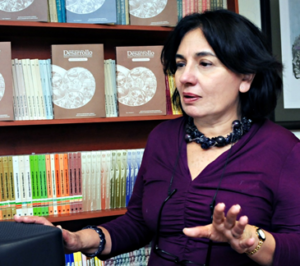
Coordinator of the University Program of Asian and African Studies (PUEAA) since May 2017 and Coordinator of the Asian Studies Seminar (2014 – 2017); researcher of the Economic Research Institute (IIEc). Bachelor’s degree in Economics from the Faculty of Economics; Master’s and Ph.D. in Latin American Studies from the Faculty of Political and Social Sciences, and Tutor of the Postgraduate Program in Economics, Latin American, and Administrative Sciences at UNAM. Her main research topics are financial economics, particularly related to economic cycles, financial crises, sovereign debt, and financial systems. She has research related to gender economics and its relationship with financial circuits at macroeconomic and microeconomic levels. Director of the IIEc (1994 – 2002) and Editor of “Problemas del desarrollo”, Latin American economics magazine (2010 – 2018); member of the National Research System level III and winner of the “Universidad Nacional” award of the Economic-Administrative Sciences (2010). She has coordinated over 30 books and participated with more than 100 book chapters and articles for national and international magazines. President of the International Association for Feminist Economics (IAFFE) (2015-2016) and member of the High-Level Panel on Women’s Economic Empowerment of the United Nations (2016 – 2017).
Session Details
Financial capitalism has undergone profound changes since at least the 1970s, which made finance even more important for all dimensions of social life (in addition to its most obvious influence on economic processes). This lecture aims to present a geographical view of contemporary financial dynamics, through the presentation of research results on the “financialization of the Brazilian territory”. Among the main changes that took place in this financialization process, we highlight: the centralization of capital market transactions in only one stock exchange (B3, based in São Paulo); the transformation of banking topology, which is less dependent on branches (and face-to-face services) and more intensive in the use of information technologies / online services; 3. the diffusion of fintechs and digital banks in the Brazilian territory.
Speaker: Fabio Betioli Contel, University of São Paulo, Brazil

Fabio Betioli Contel has a Master’s Degree (1998) and PhD’s Degree (2006) in Human Geography from University of São Paulo (Brazil). He made a doctoral internship at Friedrich-Schiller-University in Jena (Germany) during his PhD’s research (2005), where he also worked in 2007 as invited researcher (Gastwissenschaftler). Since 2008 he is assistant professor at the Department of Geography of the University of São Paulo and has as main themes of research urban and economic geography (with special interest in financial geography). He published the book Finance and territory: norms, techniques and banking topology in Brazil (Annablume, 2011, in Portuguese) and The Financialization of the Brazilian Territory: from global forces do local dynamisms (Springer, 2020).
Chair: Sabine Dörry, Luxembourg Institute of Socio-Economic Research, Luxembourg
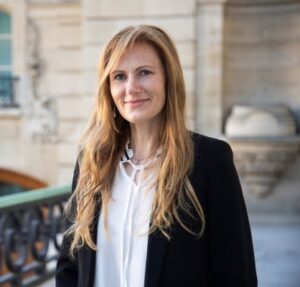
Sabine Dörry is a Senior Research Fellow at the Luxembourg Institute of Socio-Economic Research (LISER). Her work focuses on developing alternative ways of analysing the global financial system and development of financial centres. This includes questions about how shifts toward sustainable finance and technological immersion affect financial activities and urban development
Session Details
The presentation will explore how (subordinate) financialization in Developing and Emerging Economies (DEEs) has impacted real estate developers, agents traditionally understood as key stakeholders at the local level. While recent studies have shown the complexity of today’s real estate markets in light of financialization, these works have sometimes neglected the transformation of developers’ organization and strategies. I will focus, therefore, on exploring some of the links between international capital flows and large real estate development firms in a country with low integration into the global financial system, such as Argentina. I will show that while large developers have been empowered by financial and urban regulation, real estate financialization has remained at the level of short-term state-funded experiments for national and international capital. A thin capital market and volatile macroeconomic conditions have organized a dollarized real estate market where developers’ information, political links and financial risk managing techniques determine the success or failure of their experiments.
Speakers: Ivana Socoloff, University of Buenos Aires, Argentina
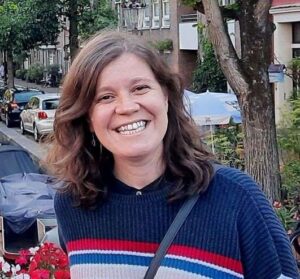
Ivana Socoloff is a sociologist with an MA in Territories and Space (EHESS) and a doctorate from the University of Buenos Aires (UBA). She is currently a researcher at Argentina’s National Research Council (CONICET) based at the Institute of Latin American Studies at the University of Buenos Aires (IEALC-UBA). She specializes in urban sociology and economic geography and has published articles on real estate financialization.
Chair: Manuel Aalbers, KU Leuven, Belgium
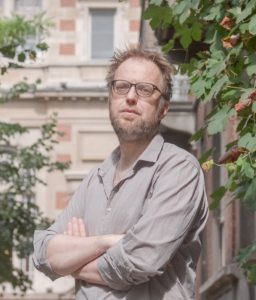
Manuel B. Aalbers is professor of Human Geography at KU Leuven, the University of Leuven (Belgium) where he leads a research group on the intersection of real estate, finance and states. He has also published on financialization, redlining, social and financial exclusion, neoliberalism, mortgage markets, the privatization of social housing, neighborhood decline and gentrification. He is the author of Place, Exclusion, and Mortgage Markets (Wiley-Blackwell, 2011) and The Financialization of Housing: A Political Economy Approach (Routledge, 2016) and the editor of Subprime Cities: The Political Economy of Mortgage Markets (Wiley-Blackwell, 2012). He is also the associate editor of the Encyclopedia of Urban Studies (Sage, 2010) and editor-in-chief of geography journal TESG. Most of his papers can be downloaded from https://kuleuven.academia.edu/ManuelAalbers. Finally, Manuel is also one of the founding members of FinGeo.net, the Global Network on Financial Geography.
Session Details
Financial relationships connect cities through complex networks of multinational firm headquarters, branches, and subsidiary locations. This research presentation first provides an overview of the global financial network of cities based on all multinational firm-subsidiary ties of listed companies. Data are derived from 13,583 multinational firms with 163,821 international subsidiary locations listed on 208 global securities exchanges. It then uses descriptive and inferential statistics to explain the nature of the global financial networks of cities. Applying an exponential random graph model, it concludes that economic and developmental considerations outweigh cultural and regional factors in determining connectivity between firms in cities. Conclusions support the precept that financial processes play a key role in driving global economic relationships between cities.
Speaker: Thomas Sigler, The University of Queensland, Australia
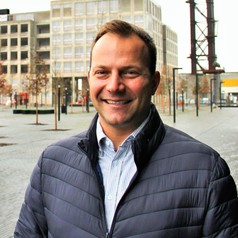
Dr Thomas Sigler is an Associate Professor of Human Geography at The University of Queensland in Brisbane (Australia), and Guest Professor of Geography at the University of Luxembourg. His research interests sit at the intersection of urban and economic geography, with a strong focus on how cities are shaped by globalisation. He has published widely across geography and urban planning, including in Urban Studies, Environment and Planning A, Regional Studies, PLOS One, and Economic Geography. He also sits on the editorial boards of Urban Geography, Geographical Research, and Global Network, and is the FinGeo regional ambassador to Australia.
Chair: Maedhbh Nic Lochlainn, University of Luxembourg, Luxembourg

Maedhbh Nic Lochlainn (she/her) is a postdoctoral researcher in the Department of Geography at the University of Luxembourg. Maedhbh’s research interests are mainly in urban and digital geographies, and she completed her PhD on housing and digital/material contention at Trinity College Dublin. She is part of the FNR-funded FINCITY project team, with whom she is currently researching European Financial Centres in Transition.
Session Details
Gulf states face an existential threat from efforts to decarbonise the global economy and minimise the effects of the climate crisis. For their ruling elites, there is a pressing need to diversify out of oil and their domestic economy in order to protect their accrued wealth and maintain their regime. In some UK cities, this impetus has been experienced as an inflow of overseas state capital into property assets, profoundly reshaping the local urban development process. Yet this process has not been entirely smooth – in many cases the global image of these cities rests on their perceived reputation as an open, progressive and tolerant place which can incur reputational costs when they are too closely associated with regimes whose human rights record is poor. How do authoritarian regimes organise their investments in cities that market themselves as liberal bastions? The paper explores this dilemma through a case study of Manchester Life – a £350m public-private Build to Rent residential property joint venture between Manchester City Council (UK) and the Abu Dhabi United Group (ADUG), a private equity group with close ties to the ruling family of Abu Dhabi. Using corporate network mapping and accounting analysis, we trace the spatial network of legal entities involved in the deal, as well as the financial flows across jurisdictions. Our study reveals how, initially, ADUG’s financial investments into sporting and cultural assets reduced reputational concerns locally and helped build a ‘soft power enclave’. This provided the platform for an extensive programme of residential real estate development, managed aggressively for margin. We chart the flows of finance into Manchester via entities located in the secrecy jurisdiction of Jersey, the organisation of entities within Manchester which limited or ‘dammed’ financial outflows to the council partner and the national exchequer, and the rental flows back to Abu Dhabi through Jersey. We argue that tax havens, in this context, operate as sharp power conduits within a financial network – facilitating Gulf elite interests whilst preventing local public scrutiny and accountability around the extent of the profits extracted. The paper critically contributes to both the financial geography of real estate investment, the financialisation of Built-to-Rent assets and recent state capitalist research. We show that the state, far from being monolithic, is hybridising – becoming something more protean and mobile to facilitate its financial reach into global real estate markets. We focus in particular on the incorporation of private sector actors within the decision-making apparatus of the state and its adjacent entities who strategically manage the expansion of Gulf state real estate investment.
Authors:
Richard Goulding (University of Sheffield)
Adam Leaver (University of Sheffield/Copenhagen Business School)
Jonathan Silver (University of Sheffield)
Speaker: Adam Leaver, University of Sheffield/Copenhagen Business School

Adam Leaver is Professor in Accounting & Society and Director of the Centre for Research on Accounting and Finance in Context at the University of Sheffield. He also holds a fractional role as Professor in Accounting at Copenhagen Business School. Adam’s primary research interest is in the financialization of the firm. His recent work examines the dimensions of time and space in accounting and finance, including his work on ‘hollow firms’ and the role of the accounting regime in facilitating higher shareholder distributions, the changing social networks within financial services and the different speeds of accumulation in city-region development.
Chair: Sabine Dörry, Luxembourg Institute of Socio-Economic Research, Luxembourg
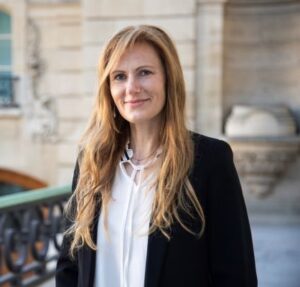
Sabine Dörry is a Senior Research Fellow at the Luxembourg Institute of Socio-Economic Research (LISER). Her work focuses on developing alternative ways of analysing the global financial system and development of financial centres. This includes questions about how shifts toward sustainable finance and technological immersion affect financial activities and urban development.